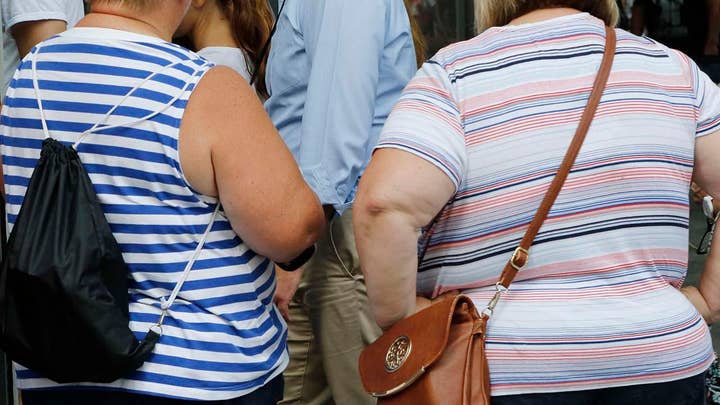Fox News Flash top headlines for November 11
Fox News Flash top headlines are here. Check out what's clicking on Foxnews.com.
A new foot ulcer formulation developed by scientists at the University of South Australia could be used to kill the COVID-19 virus, according to new research.
In a study published in the journal Applied Physics Letters, the team looked at the treatment of antimicrobial-resistant bacterial infections, experimenting to find an effective non-antibiotic antimicrobial strategy to combat the infections in diabetic foot ulcers.
The authors found that enhancing cold plasma ionized gas with peracetic acid was "highly effective" at eradicating common wound pathogenic bacteria and at inactivating SARS-Cov-2.
"This paper presents a strategy utilizing cold plasma for the "on-demand" activation of acetyl donor molecules. The process generates an aqueous-based antimicrobial formulation comprising a rich mixture of highly oxidizing molecules: peracetic acid, hydrogen peroxide, and other reactive oxygen and nitrogen species," the group explained. "The synergistic potent oxidative action between these molecules is shown to be highly effective at eradicating common wound pathogenic bacteria (Pseudomonas aeruginosa and Staphylococcus aureus) and at inactivating a virus (SARS-CoV-2)."
In a statement to the university, Endre Szili said that they initially found that combining cold plasma gas with acetyl donor molecules to improve its oxidation completely killed bacteria found in chronic wounds.
Next, Szili wrote, the researchers investigated whether the same technology could be effective at killing the SARS-CoV-2 virus, and "it appears that it is."
"We showed that we could achieve an 84% reduction in viral load using plasma combined with acetyl donor molecules based on a standard dosage that is safe for human cells. However, it is highly possible with some modifications that we could eradicate it completely," he said.
The technology, owned by U.K.-based AGA Nanotech, could be used to disinfect surfaces in hospitals and through air conditioning systems, the author noted.
The solution has yet to be tested on COVID-19 variants, like delta.
For diabetic people impacted by chronic foot wounds, the findings were also significant.
"Foot ulcers are a huge problem for diabetics. Antibiotics are usually the first line of treatment, but bacteria are increasingly becoming resistant to antibiotics and we need a new solution," Szili said.
BLOOD PRESSURE MEDICATION RECALLED OVER POSSIBLY CONTAINING CANCER-CAUSING 'IMPURITY'
Combining cold plasma with the acetyl donor molecules, generating hydrogen peroxide and releasing peracetic acid, resistant bacteria is killed.
For Pseudomonas aeruginosa, which can cause infections in the blood and lungs after surgery, the technology using the plasma without the acetyl donor molecules was completely effective.
Staphylococcus aureus, also known as "golden staph," necessitated the combined treatment.
"We urgently need an antibiotic-free solution to address the global escalation in antimicrobial resistance and we believe we have made an important first step with this new strategy," he said, adding that the formulation could be used in a cream, gel, aerosol or wound dressing.
The University of South Australia said the latter option is currently in a trial at Royal Adelaide Hospital and Queen Elizabeth Hospital.
More than 122 million Americans are living with diabetes or prediabetes, according to the Centers for Disease Control and Prevention.
Diabetes is the seventh leading cause of death in America and about half of all people with diabetes suffer some kind of nerve damage, with feet and legs often the most affected.
That nerve damage, along with poor blood flow, puts individuals at risk of developing a foot ulcer that could become infected.
CLICK HERE TO GET THE FOX NEWS APP
"If an infection doesn’t get better with treatment, your toe, foot, or part of your leg may need to be amputated (removed by surgery) to prevent the infection from spreading and to save your life," the agency warned.
The International Diabetes Federation reports that 1 in 10 adults aged 20-79 is living with diabetes and that diabetes was responsible for one death every five seconds in 2021.












































